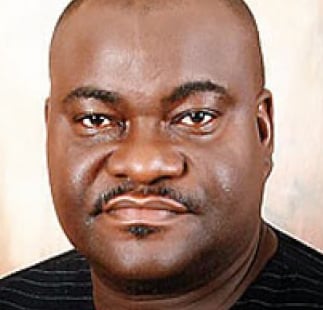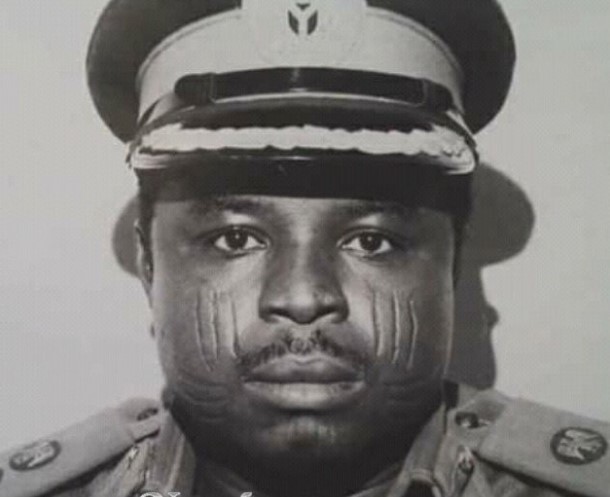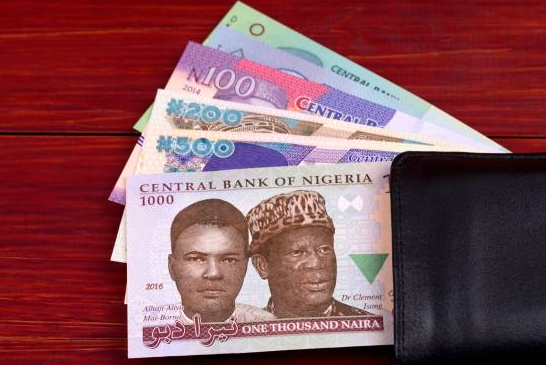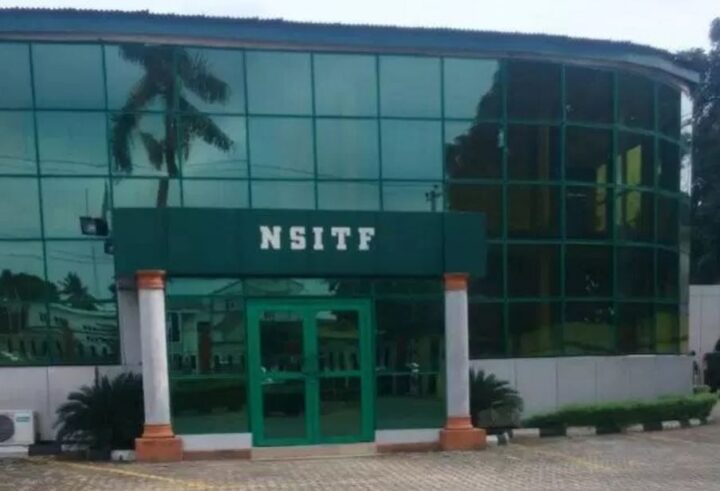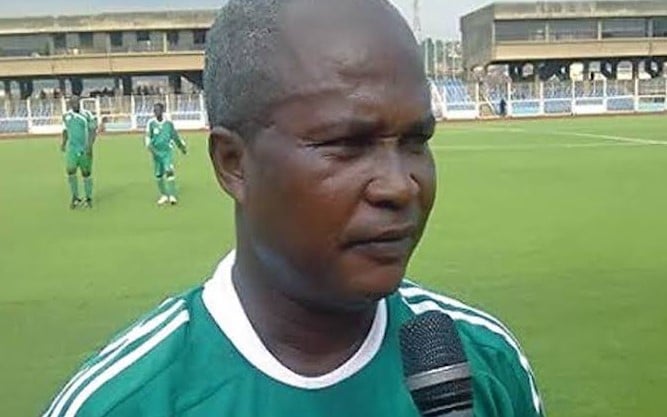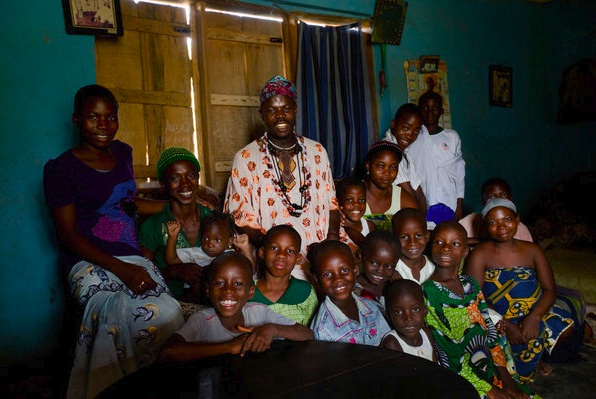Mpape, a rocky district in the nation’s capital, Abuja, is not your characteristic venue for a conference, convention, or retreat. Not with exquisite facilities like the Transcorp Hilton, Sheraton Hotel, and similar upscale hotels in the city. There is also an avalanche of dedicated event places in the nation’s capital. Mpape, the rocky topography which has spawned communities, settlements, and ultramodern housing estates is famous as a primary hub for granite mining. Earthquake rhythms, reverberating sounds of explosions, and bombing blasts, therefore, are the defining characteristics of the undulating topography of Mpape. Quarrying activities in the nation’s administrative hub, are predominantly domiciled on those eyeful ranges. And the hummings and grunts of heavy trucks in relentless motions up and down the ascending terrain is the music of every day.
All of that, however, temporarily acquiesced to a notable event that recently took place in the district. The superiority of “words of iron and sentences of thunder,” to borrow the expressions of the charismatic poet, Niyi Osundare, took centre stage. They subdued the dust-filled Mpape air, activated by the rapid descent of northerly harmattan. The cream of Nigeria’s literary producers and their critic counterparts in the engaging vocation of creative writing and literary intellection congregated up Mpape hills. The dates were Wednesday, October 26, through Saturday, October 29, 2022. And the event was the 41st annual convention of the Association of Nigerian Authors (ANA). The venue, Mamman Vatsa Writers’ Village.
Mamman Jiya Vatsa, an army major general in his time, was creatively inclined. He authored verses published as poetry collections including Verses for Nigerian State Capitals, (1973); Tori For Geti Bow Leg, (1981) and
Back Again at Wargate, (1982). Vatsa also published Reach for the Skies in the same year. The renowned literary scholar, Biodun Jeyifo in a 1988 critique of Vatsa’s work, applauded him for deploying “his enormous influence in government and the federal bureaucracy to avail ANA of much-needed infrastructure and logistical support to see the body through at least two of its yearly conferences”.
The administration of Vatsa’s military colleague, Muhammadu Buhari, who was in office between January 1, 1984, and August 27, 1985, appointed Vatsa as the minister of the federal capital territory (FCT). He had responsibility for the administration of the federal capital territory (MFCT) and was concurrently a member of the supreme military council (SMC), the nation’s highest policy-making body in that era. Former military president, Ibrahim Badamasi Babangida in 1985, retained him in the position, upon the overthrow of the government of Buhari. Vatsa was reportedly a childhood friend of Babangida, and one of the coterie of elite military officers in their generation from Niger state. Others include Gado Nasko, Abdulsalam Abubakar and the late Mamman Kontagora. Barely four months thereafter, Vatsa was arrested and detained “on suspicion to commit treason” and interrogated closed door, by a military tribunal. Alongside his “co-conspirators”, Vatsa, on March 5, 1986, was executed by firing squad. They were convicted “for treason associated with an abortive coup”. He was just 45.
Advertisement
Fortuitously, Vatsa had engraved his name and memory in the sands of time before his unfortunate despatch. Since its establishment in 1981, as the brainchild of the revered master storyteller himself, Chinua Achebe and half a dozen other like-minded writers, ANA desired an ideal creators’ resort. Achebe’s co-founders of the association, on June 27, 1981, included: John Pepper Bekederemo-Clark; Timothy Aluko; Femi Osofisan and Niyi Osundare. Two Kenyan writers, the iconic Ngugi wa Thiong’o and Gacheche Wauringi, also attended that premiere.
The association wanted a congenial atmosphere where writers could observe their hideaways and listen to their muses for inspiration. The FCT under Vatsa’s watch, hosted the sixth convention of ANA in the last quarter of 1985, just months before his arrest. The event was held within the geographical space of “Usuma Dam,” in Bwari Area Council of the FCT. Vatsa had acceded to the request of the association by allocating a sprawling expanse of land in the contemporary Mpape district, for the development of its dream — a purpose-built writers’ village.
Mpape was then some far-flung, forlorn, forested abutment to the city centre of Abuja which was then being gradually developed into the future capital. If that pseudo-remoteness of Mpape was initially assumed to be a safeguard against the identification of the property by prospectors or trespassers, such calculation turned out to be wrong. Possessing, policing and developing that generous expanse of land in an FCT lapping development like famished fish, was not as straightforward. Indeed, it became a tortuous ding-dong from one Nigerian government to another, one leadership of the FCT to the next, and indeed from one ANA national executive body to its successor. The dream of the village spawned several twists, turns and tales. When there were no threats of revocation of the property, mischievous land grabbers coveted the asset. At other times, land wheelers and dealers, nibbled substantially ate the ears of the land in places.
Advertisement
The immediate past national president of the association, Denja Abdullahi, alludes to “lack of capacity, failed promises, betrayals, revocation, reallocation, long-drawn litigations and brazen trespasses,” as impeding the early consummation of the envisioned project. ANA, at some point, indeed prayed that some literary-minded national leadership of the country will launch the physical development of the concept. By the time the visionary and strong-willed ANA leadership under Abdullahi entered into a partnership with KMVL Developers, an expanse of property which was initially a mass of 61 hectares, had shrunk to about 37 hectares! The joke has been made about KMVL, steered by Kolawole Shaw, a retired army colonel, helping to develop a property earlier allocated by a former army general! Actual development commenced in 2017 and by 2018, the ANA leadership felt confident enough to relocate its secretariat from its temporary abode at the National Theatre, Lagos, to the fledgling Abuja site of the Writers’ Village.
It was an eye-arresting, scenic, burgeoning resort which welcomed delegates to the 40th anniversary of the creation of the organisation last year, hosted between Wednesday, November 3, and Saturday, November 6, 2021. From the hilly, major access road which leads up into Mpape, the view of the valley on the left side of the road as you approach “Grange Hill Hotel” to your right, is breathtaking! Dominantly inscribed as a signpost at the approach of the upcoming community is Mamman Vatsa Writers’ Village. This is the eventual reincarnation of that indomitable soldier-poet, 36 years after his unfortunate liquidation via martial pronouncement. You meander through tar-paved, snaky roads, ascending, descending, taking in the humongous physical development being undertaken in the village.
The cream-coloured ANA International Conference Centre sits royally in the luminous landscape of the Vatsa complex. With a few bungalows in immediate view, that was about all that was in place during the milestone event in 2021. A caterer was also hired to provide for delegates in the absence of a functional kitchen. The voluminous conference hall has since been fittingly christened Chinua Achebe International Conference Centre (CACIC). It houses the association’s national secretariat, which has been named Femi Osofisan ANA National Secretariat. There is also the ANA Library and Research Centre within the Chinua Achebe Complex.
The pre-event meet and greet was spiced by drama, music and dance, as delegates to the convention savoured banters, back-slaps, drinks and finger foods. Titled: ‘Resilience and Nation Building: The Role of Nigerian Literature’, the 40th-anniversary lecture was delivered by literary laureate and awardee of the Nigerian National Order of Merit (NNOM), Emeritus Professor Femi Osofisan. He saluted the memory of the initiator and pioneer leader of ANA, Chinua Achebe. “We cannot forget him,” he said. Speaking about “The Story As Escort,” Osofisan reminded writers about their core obligations to their societies.
Advertisement
According to him: “We are the storytellers, the people who hold the society spellbound by recounting issues that shape and reshape our beings… We are here to create history, to recreate our societies. We will be indicted if we don’t sit up and speak out”. The keynote paper was presented by multiple award-winning Professor Akachi Adimora-Ezeigbo and titled: ‘Creativity, Literary Advocacy and Nation Building: The Role of Nigerian Literature’. She charged Nigerian writers to “bomb criminals and those responsible for crippling in Nigeria, with words to compel them to change their evil ways”. She expressed delight “for being the very first person to deliver a keynote address on the hallowed grounds of the brand new Writers’ Village!”
For a convention which was more or less a test run of the new facility, the attendance was impressive. Apart from front liners like Osofisan and Adimora-Ezeigbo, other renowned writers and scholars in attendance included Professors Shamshudeen Amali, Remi Raji, Sunnie Ododo, Al Bishak, Joe Ushie, Rasheed Na’Allah, Moses Tsenongu, Maria Ajima, Mary Nwoye, Dul Johnson, Mabel Evwierhoma and Greg Mbajiorgu. Other renowned writers and stakeholders of the tribe included Wale Okediran, Lindsay Barrett, Abdul Oroh and John Asein. The ANA convention retained its appeal as an international brand with writers from Ghana and Cameroon in attendance, notably Sarpong John Asiedu and Pobee Mwintombo, both from Ghana.
The recently concluded 41st international convention of ANA and the second such event to be hosted at the Mamman Vatsa Writers’ Village was indeed bigger than the first edition. It began on Wednesday, October 26, through Saturday, October 29, 2022. The theme of the event was ‘Literature And National Consciousness: The Story As A Catalyst’ and the keynote speaker was Abdul Rasheed Na’Allah, vice chancellor of the University of Abuja. The day before the lecture, however, ANA conferred fellowships on deserving writers and culture workers. These include Na’Allah, Anaezi Okoro, Moses Tsenongu, Razinat Mohammed, Udenta Udenta, Nduka Otiono and Tess Onwueme and Lindsay Barrett. Yusuf Adamu, Amanze Akpuda, Dul Johnson, Mark Nwangwu, Francis Egbokare, Ademola Da-Sylva and Olabanji Fashina were also inducted as fellows.
Olu Obafemi, a recipient of the Nigeria National Order of Merit (NNOM), spoke at the induction and enjoined inductees to build upon and raise the bar of the state of literature in Nigeria today. Razinat Mohammed, a professor at the University of Abuja, presented the keynote address on Na’Allah’s behalf. The institution was thrown into mourning on Monday, October 24, 2022, when Adakole Oklobia, a professor of theatre arts, sadly died in an automobile crash. This accounted for the zero turnout of writers and creative practitioners from the school at the convention. The session was chaired by Benue state governor, Samuel Ioraer Ortom, who was represented by his chief of staff, Gabriel Tivlumun Nyitse, himself a poet, journalist and mass communications scholar. Nigeria’s musical luminary, Bongos Ikwue, made a rare appearance at the programme and sang a number of his evergreen songs to the admiration of older participants.
Advertisement
In attendance were legends like Kalu Uka, Ernest Emenyonu, Adimora-Ezeigbo, Osofisan, Obafemi and Justus Obi Joseph Nwachukwu-Agbada, more prominently known as “JOJ Nwachukwu-Agbada”. Shamshudeen
Amali, Al Bishak, Akpuda, Ushie, Mbajiorgu, Chimalum Nwankwo, James Tsaaior, Chidi Osuagwu, Mngumember Vicky-Sylvester, all distinguished scholars and professors, made it to the event. Obari Gomba, (award-winning poet), John Asein, (director-general of the National Copyright Commission); Nyaknno Osso, (foremost librarian and archivist); Steve Shaba, (reputable publisher), Helen Wang, Chukwudi Eze, (an architect), Emmanuel A. Frank-Opigo, (an engineer), Emmanuel Ojukwu and (a retired police commissioner) participated at the convention. John Sarpong Asiedu (from Ghana) and Sulayman Tekanyi (from Gambia) gave international colour to the attendance.
The Mamman Vatsa Writers’ Village is work-in-progress. But Nigeria can appropriate to itself today, the bragging rights of giving to Africa, perhaps the first of its kind of haven for writers and literary creators. The Writers’ Village, is an upcoming tourist delight in its own right, even as it stands solidly today in Nigeria’s bright sunny savanna. A few more structures have been added to the budding complex, notably a block of 22 all-ensuite chalets in a multistorey block. Rather than a serial numbering of the rooms in the structure, they are named after notable Nigerian writers and select former leaders of ANA, as the project grows. This is where names like Achebe, Clark, Wole Soyinka, (Nobel laureate), Mabel Segun, Akachi-Ezeigbo, Kole Omotoso, Osofisan, Ken Saro-Wiwa, Odia Ofeimun, and Abubakar Gimba, resonate. Obafemi, Okediran, Jerry Agada, Raji and Abdullahi, also have chalets christened after them.
Advertisement
President of ANA and convener of the convention, Camilus Ukah, expressed delight at the quality of attendance, vigour of discourse and the rapid acclimatisation of writers to their new environment. He thanked those he described as “living ancestors” of Nigerian literature and literary criticism, for their continuing paternal and maternal guidance to younger writers and the association. He saluted them for leading by example, courtesy of their prompt and regular participation at ANA events, despite the fact that many of them have retired from active formal teaching and research engagements.
Gradually, as it were, the tortoise is crawling to its desired destination, as the Yoruba proverb says. Mamman Vatsa Writers’ Village is yet another symbol of Nigeria’s continuing dominance of literature and creative arts, on the African continent. Elsewhere, Lesotho-based Chris Dunton, a professor of English, has fittingly labelled Nigeria “the powerhouse of African literature.”
Advertisement
Olusunle, poet, journalist, scholar and author, is a member of the Association of Nigerian Authors (ANA)
Advertisement
Views expressed by contributors are strictly personal and not of TheCable.
Add a comment
